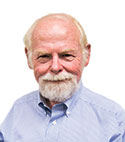|
The oil and gas industry has changed remarkably over the past four decades. A good deal of that change—progress actually—can be credited to the growing collaborative environment in the industry, both in projects and in multi-disciplinary teams. The change has driven further collaborative advances in numerous areas of expertise. One recent contribution is the Energy Data eXchange (EDX).
Through partnerships with universities, the private sector, and other governmental agencies, the U.S. National Laboratories serve as regional hubs for scientific innovation and technological advancement. At the National Energy Technology Laboratory (NETL), collaboration is a key component to the complex challenges of fossil energy research. These challenges require cross-disciplinary approaches and quicker, more efficient access to resources. NETL’s Energy Data eXchange (EDX) facilitates the active advancement of energy innovations by simplifying the logistics of research and collaboration.
When the scientists from the DOE’s National Labs and other federal agencies needed to work together to find a swift solution to the Macondo oil spill disaster in 2010, it was not a simple matter to share ideas and data. Researchers from different organizations often did not have efficient access to each other’s files, and data sets were too large to be emailed. There was no efficient way to collaborate and problem-solve as a single team. An additional challenge was finding other authoritative, appropriate sources for information not already within the response team’s working files.
“This experience really opened our eyes to the need for a common portal that would facilitate and enhance our ability to share ideas,” says NETL researcher Kelly Rose, Geology & Geospatial Research Team Lead. Rose and her team began planning and developing EDX in late 2010 as a way for NETL researchers, and their collaborators, to share data, and use it as a portal for easy access to pertinent data sets from outside the organization. Today, EDX is a comprehensive, evolving tool for research and collaboration.
Efficient data exchange. EDX version 1 was launched in 2012 as an online system, offering researchers a peer-to-peer tool that they can use to efficiently find, and share, information and tools relevant to NETL’s research portfolios. In the spring of 2013, version 2 was released, featuring additional functionality and resources to support research coordination and collaboration for teams actively working on projects; the system continues to evolve and grow via user feedback and user needs.
A fundamental benefit of EDX is its secure sharing environment components, which encourage collaboration among its users while honoring the need for teams to work privately on evolving projects. “EDX has a public-private duality that’s unique among other data sharing services,” Rose explains. “We looked at this from the perspective of both project managers and researchers, and realized we needed to find a way to convey results but also to more efficiently foster research as it’s happening.” The public facing side of EDX increases data exposure and reaches a wide audience for knowledge transfer, use and reuse, while the secure private side enables efficient data management, including holding sensitive datasets secure after a project’s end date, to ensure publications, patents, etc., have time to be released. It also ensures long-term access to key datasets and research results that are often lost, once a project reaches completion.
Practically speaking, the system offers terabytes of storage space to accommodate the large files associated with advanced research projects. Handling this amount of information is often cost-prohibitive or impossible for similar, business-oriented technologies. EDX also avoids the obvious security issues involved with sharing thumb drives and other portable media. Plus, EDX offers users easy access to their workspaces; if they have access to a browser, they have access to all their data a growing suite of online analytical tools, and their fellow collaborators.
Collaborative workspaces. One EDX feature that highlights how the system facilitates teamwork across the lab is the Collaborative Workspace. As the name implies, EDX’s Collaborative Workspaces give researchers a common, private space to share data and ideas, keeping them connected to efficiently solve today’s energy challenges. Admission to a particular Collaborative Workspace is limited to approved members of that workspace. Users within a given workspace have access to working documents and project-related content within that workspace, as well as built-in features like a calendar and forum. According to Rose, “It’s a useful research-support and development tool. The logistics of how to get the work done in a multi-organizational group are largely taken care of, allowing researchers to worry less about the mechanics of how to share or transfer information among team members, and to focus more time and resources on the research, itself.” To date, EDX has 106, and growing, Collaborative Workspaces. For a more detailed tour inside EDX, its Collaborative Workspaces, and the system’s other collaboration–coordination tools, visit https://www.youtube.com/watch?v=jTgO6VAasOU.
Collaboration and coordination drive results. Additional features within the system enable researchers to share information, and enhance collaboration through tailored tools and other assets. “EDX is a coordination–collaboration tool,” says Rose. “It gives researchers a way to advance their work through multiple applications. They’re not just finding results; they’re actually using the datasets. Ultimately, this allows us to address fossil energy challenges more quickly.” Ultimately, EDX’s content and capabilities are driven by its user base, so the system grows and evolves in response to the user-community needs. 
|




